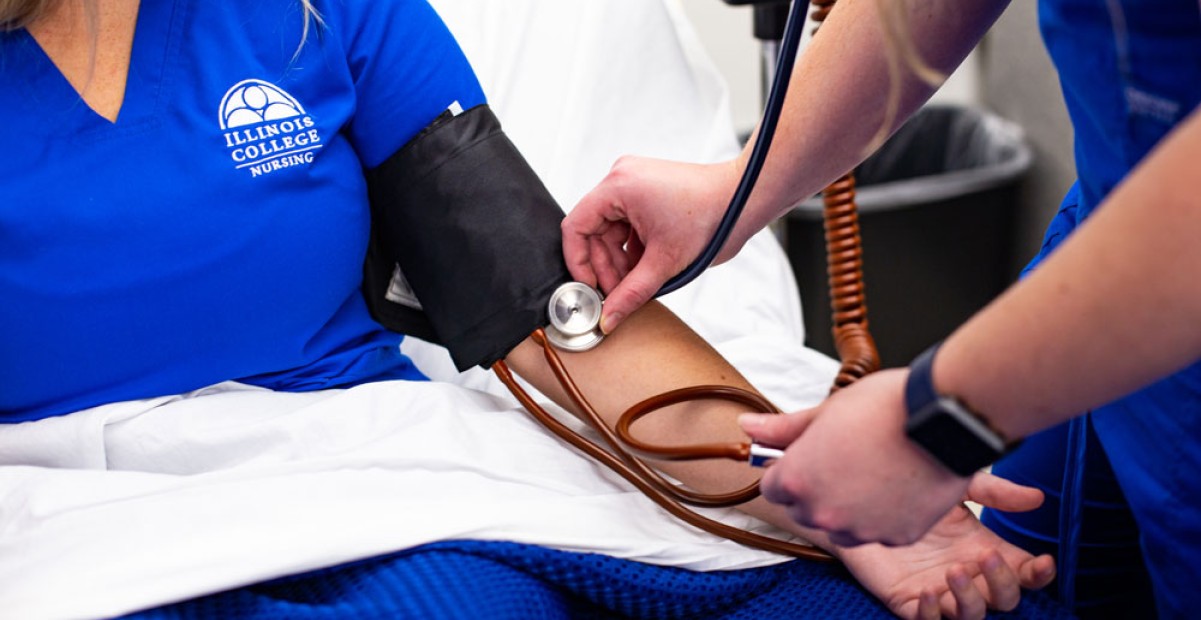Demand for nursing and health-related professions

These degrees and programs provide opportunities for students looking to make meaningful contributions to their communities. In programs such as health sciences, kinesiology, neuroscience and nursing, students are learning the importance of adapting in a fast-paced and technologically advanced world while receiving the strong foundational education that has characterized IC for generations.
HEALTH SCIENCE
Students in the health sciences major are provided strong foundational knowledge to get them ready for futures in a variety of careers in health care, according to Associate Professor of Biology Paul Hamilton ’09. Whether they are interested in becoming an occupational therapist, lab technician, athletic trainer or health professional in a related area, students majoring in health sciences are well prepared for acceptance into competitive graduate programs or to move directly into professional careers.
Hamilton returned to his alma mater to ensure that the next generation of students received the quality of education and personal attention he received as a student. He received his Ph.D. in cell and developmental biology from University of Illinois at Urbana-Champaign. Hamilton’s research interests are centered on why specific tissues in certain organisms have the capacity to regenerate. He regularly hosts student researchers in his labs, many of whom then go onto graduate school.

Coursework in the biological sciences is augmented by courses in psychology, sociology and various disciplines in the humanities. This range of preparation helps students be ready to work in diverse communities, Hamilton noted.
Health sciences students also have the flexibility to pair their major with another, tailoring their education to meet their goals. This flexibility is appealing to many students, and the health sciences major has grown quickly.
Learn more at ic.edu/health-sciences.
KINESIOLOGY & EXERCISE SCIENCE
A recent addition to offerings focused on human health and wellbeing, the kinesiology major offers concentrations in both exercise science and physical education.
“Over one-third of our student population are student- athletes,” notes Assistant Professor of Biology and Kinesiology Prasanna Acharya. “Many have shown interest in working with athletes later in their careers by becoming athletic trainers or strength coaches.” The kinesiology major also prepares students for graduate programs in physical therapy and occupational therapy.

Acharya joined the IC community in the fall of 2021 and is currently working with student-athletes to examine the effects of concussion on their cognitive task performance. He holds a doctorate in kinesiology from Louisiana State University. Acharya is particularly interested in researching human body movement, especially in fine motor control of the arm and hand. With hospitals demonstrating a growing need for exercise and nutrition as part of treatment and preventive care for patients, the demand for professionals\ in kinesiology and exercise science is expected to rise. At IC, students are gaining unique hands-on learning experiences in the lab, through student-faculty research and during their internships, preparing them to meet that demand.
Acharya describes such opportunities for students as “vital in helping them to grow professionally.”
Learn more at ic.edu/kinesiology.
NEUROSCIENCE
Neuroscience, another area of strong student interest, was first offered as a minor in 2018 and became a full major last year. Students majoring in neuroscience gain a deeper understanding of current research about the brain and are prepared for a variety of careers in medicine, health care, public policy and business.
“Neuroscience is an interdisciplinary area of work which uses tools from wide-ranging disciplines to gain a better understanding of how the brain works,” Professor of Psychology Jeremy Turner ’95 said. The IC neuroscience program includes faculty members from psychology, biology, philosophy and political science.
Turner holds master’s and doctoral degrees in psychology and behavioral neuroscience from Northern Illinois University. Turner is an auditory neuroscientist who specializes in animal models of hearing loss, tinnitus (ringing in the ears), hyperacusis (stronger than normal responses to sounds) and presbycusis (age-related hearing problems).

This fall, IC’s neuroscience program has been augmented by the addition of alumna Amanda Henton ’16, who recently received her Ph.D. in neuroscience from the University of Pittsburgh and is serving as a visiting assistant professor. Henton shares, “I am excited to return to Illinois College and have the opportunity to contribute to the academic community that encouraged my curiosity and growth as a neuroscientist. I hope to help students discover the exciting world of brain research.”
Both Turner and Henton believe that the breadth of IC’s program helps students gain a deeper understanding of the brain while also learning to think critically and approach learning and problem solving from different perspectives. There is tremendous demand for innovative leaders who can problem solve strategically and communicate effectively with diverse teams and communities.
Learn more at ic.edu/neuroscience.
NURSING
One of the most important additions to the IC curriculum is the clinical nursing program, created in 2020. The introduction of the four-year BSN was crucial in positioning IC to meet the need for RNs in Jacksonville, across the region and nationally.
President Barbara A. Farley observes, “The nursing program provides an opportunity for the College to both respond to a pressing need in Central Illinois and to offer a program of great interest to many community-minded students. Illinois College is committed to preparing students to make a difference in the world; given our mission and vision, nursing is a natural program for us to pursue.”

The nursing program has grown quickly and is an area of tremendous interest among prospective students. The College was fortunate to receive extensive grant funding supporting the creation of a state-of-the-art nursing lab. The nursing program continues to grow; just this fall IC has launched a fully online Master of Science in Nursing degree program.
Nursing majors are well prepared through the use of equipment in IC’s simulation labs and through clinical rotations offered in a variety of medical settings and specialty areas. In addition, IC’s nursing program builds upon the College’s strong liberal arts foundation to prepare students with excellent communication, critical- thinking and problem-solving skills.
The clinical nursing program has a 100% job placement rate.
Learn more at ic.edu/nursing.
 Paul Hamilton is an associate professor of biology. He holds a doctorate in cell and developmental biology from University of Illinois at Urbana-Champaign. Hamilton's research interests are centered on addressing the fundamental question of why specific tissues in specific organisms have the capacity to regenerate, while many do not.
Paul Hamilton is an associate professor of biology. He holds a doctorate in cell and developmental biology from University of Illinois at Urbana-Champaign. Hamilton's research interests are centered on addressing the fundamental question of why specific tissues in specific organisms have the capacity to regenerate, while many do not.
 Prasanna Acharya is an assistant professor of kinesiology. He holds a master of technology degree in biomedical engineering from Motilal Nehru National Institute of Technology, India, and a doctorate in kinesiology from Louisiana State University. Acharya is interested in researching human body movement, especially in fine motor control of the upper limb. Currently, he is working with student-athletes to examine the effects of concussion on their cognitive task performance.
Prasanna Acharya is an assistant professor of kinesiology. He holds a master of technology degree in biomedical engineering from Motilal Nehru National Institute of Technology, India, and a doctorate in kinesiology from Louisiana State University. Acharya is interested in researching human body movement, especially in fine motor control of the upper limb. Currently, he is working with student-athletes to examine the effects of concussion on their cognitive task performance.
 Jeremy Turner is a professor of psychology. He holds a master’s and doctoral degrees in psychology and behavioral neuroscience from Northern Illinois University. Turner is an auditory neuroscientist who specializes in animal models of hearing loss, tinnitus (ringing in the ears), hyperacusis (stronger than normal responses to sounds) and presbycusis (age-related hearing problems). He also specializes in environmental noise and vibration as stressors for lab animals and humans.
Jeremy Turner is a professor of psychology. He holds a master’s and doctoral degrees in psychology and behavioral neuroscience from Northern Illinois University. Turner is an auditory neuroscientist who specializes in animal models of hearing loss, tinnitus (ringing in the ears), hyperacusis (stronger than normal responses to sounds) and presbycusis (age-related hearing problems). He also specializes in environmental noise and vibration as stressors for lab animals and humans.


